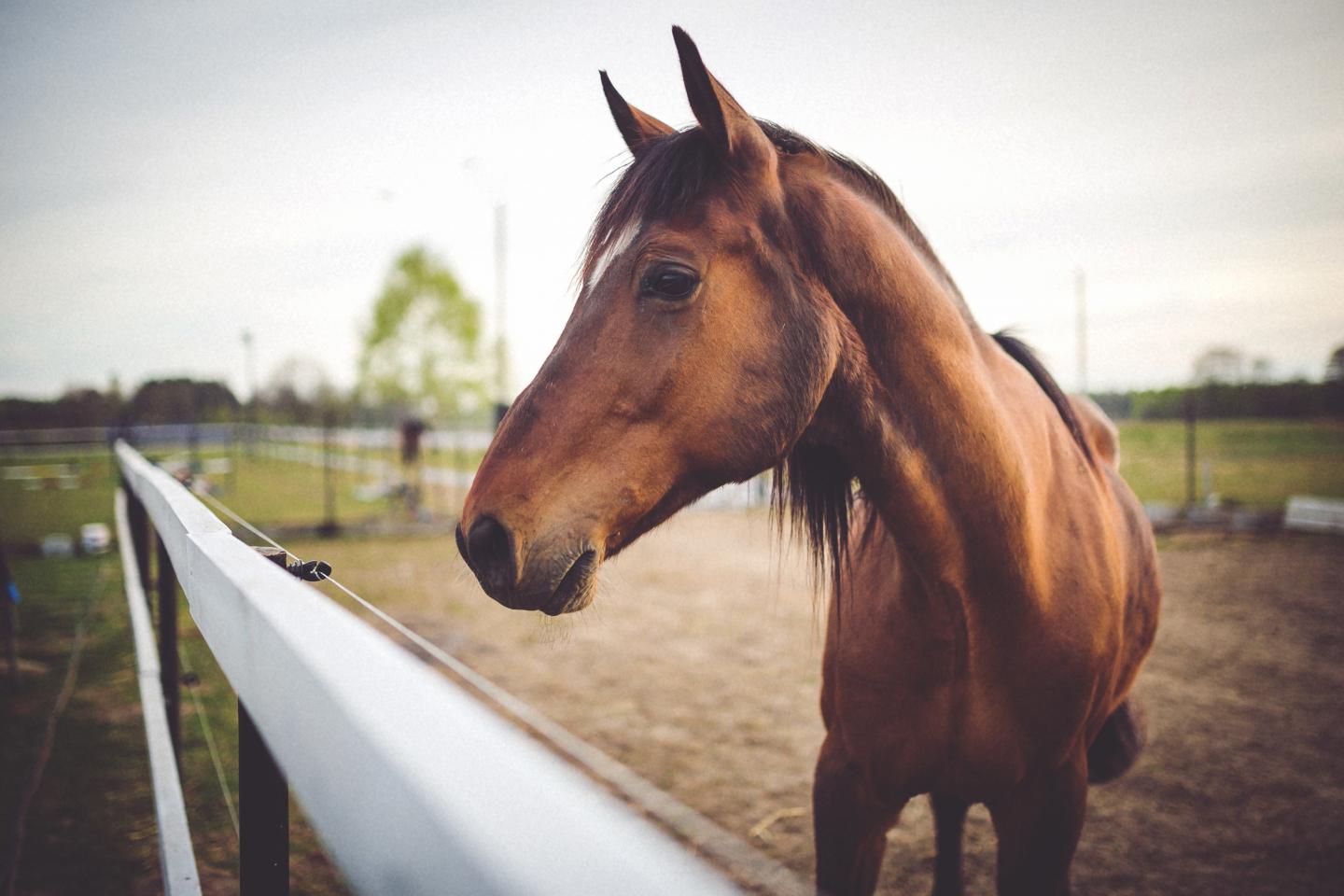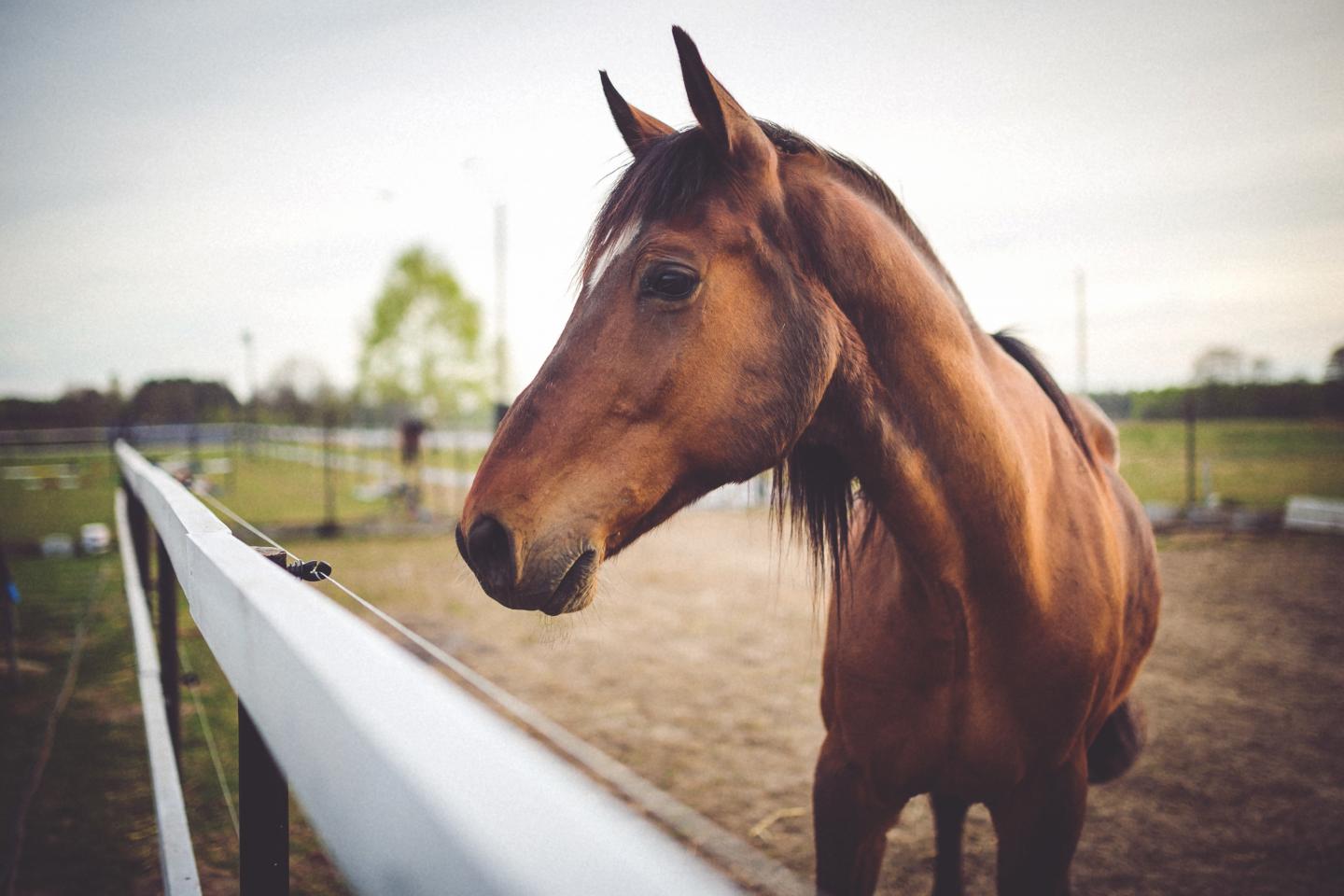
Credit: University of Rochester Medical Center
Flu vaccines for horses haven't been updated in more than 25 years, but University of Rochester researchers have developed a new live equine influenza vaccine that is safe and more protective than existing vaccines.
Luis Martinez-Sobrido, Ph.D., associate professor of Microbiology and Immunology at the University of Rochester Medical Center, says a new vaccine is needed not only to keep horses healthy, but also to protect people.
Proactively preventing the spread of flu in animals is important, as animals are the most likely source of future human pandemics. Animals – including horses, pigs and dogs – can be infected with multiple influenza viruses and have the potential to act as "mixing vessels," generating new flu strains that could infect people. This hasn't happened yet, but it's possible. These strains would be particularly dangerous, since people wouldn't have pre-existing immunity.
Equine influenza is currently circulating in North America and Europe and is highly contagious. Horses often travel long distances for equestrian events and breeding purposes, and if an infected horse is introduced into a susceptible, unvaccinated population, the spread of the virus can be fast and furious. In the past, flu outbreaks have disrupted major events and led to large economic losses.
In the journal Virology, Martinez-Sobrido and lead study author Laura Rodriguez describe a new "live-attenuated" vaccine that's given as a spray through the nose (think FluMist for horses). Past research – including studies conducted at the University of Rochester – shows that live-attenuated vaccines, made from live flu virus that's dampened down so that it doesn't cause the flu, provide better immune responses and longer periods of protection than vaccines that include inactivated or killed flu virus (like the traditional flu shot).
Created using a genetic engineering technique called reserve genetics, the new live-attenuated equine vaccine is designed to replicate and generate an immune response in the nose, where the flu first enters a horse's body, but not in the lungs, where replication of the virus can cause disease. The goal is to stop the virus at entry, preventing it from taking hold in a horse's respiratory tract.
A single spray of the vaccine protected mice and horses against the currently circulating H3N8 equine influenza virus. The vaccine was well tolerated and didn't lead to any negative side effects. Vaccinated horses showed none of the tell-tale signs of flu – including nasal discharge, coughing and wheezing – when exposed to a natural equine influenza virus. Thomas Chambers, Ph.D. in the Department of Veterinary Science, Gluck Equine Research Center at the University of Kentucky oversaw the vaccination and care of the horses.
The study was small, only involving six horses, but planning for a larger study is underway. The use of reverse genetic approaches to create the live-attenuated equine vaccine confers an additional major advantage not available until now: the vaccine can be updated quickly and easily to protect against newly emerging equine influenza strains. Traditional equine vaccines, which are made in eggs, take months to produce and do not allow the flexibility to update against newly emerging viruses.
###
The research was supported by the National Institutes of Health-funded New York Influenza Center of Excellence at the University of Rochester Medical Center and the University of Rochester Technology Development Fund. In addition to Martinez-Sobrido and Rodriguez, a research assistant professor in Martinez-Sobrido's lab, Aitor Nogales, Ph.D., participated in the research. Stephanie Reedy from the University of Kentucky and Pablo Murcia, D.V.M., Ph.D. from the University of Glasgow Centre for Virus Research also contributed to the study.
Media Contact
Emily Boynton
[email protected]
585-273-1757
@UR_Med
http://www.urmc.rochester.edu
Original Source
https://www.urmc.rochester.edu/news/story/5338/horses-get-the-flu-too.aspx





